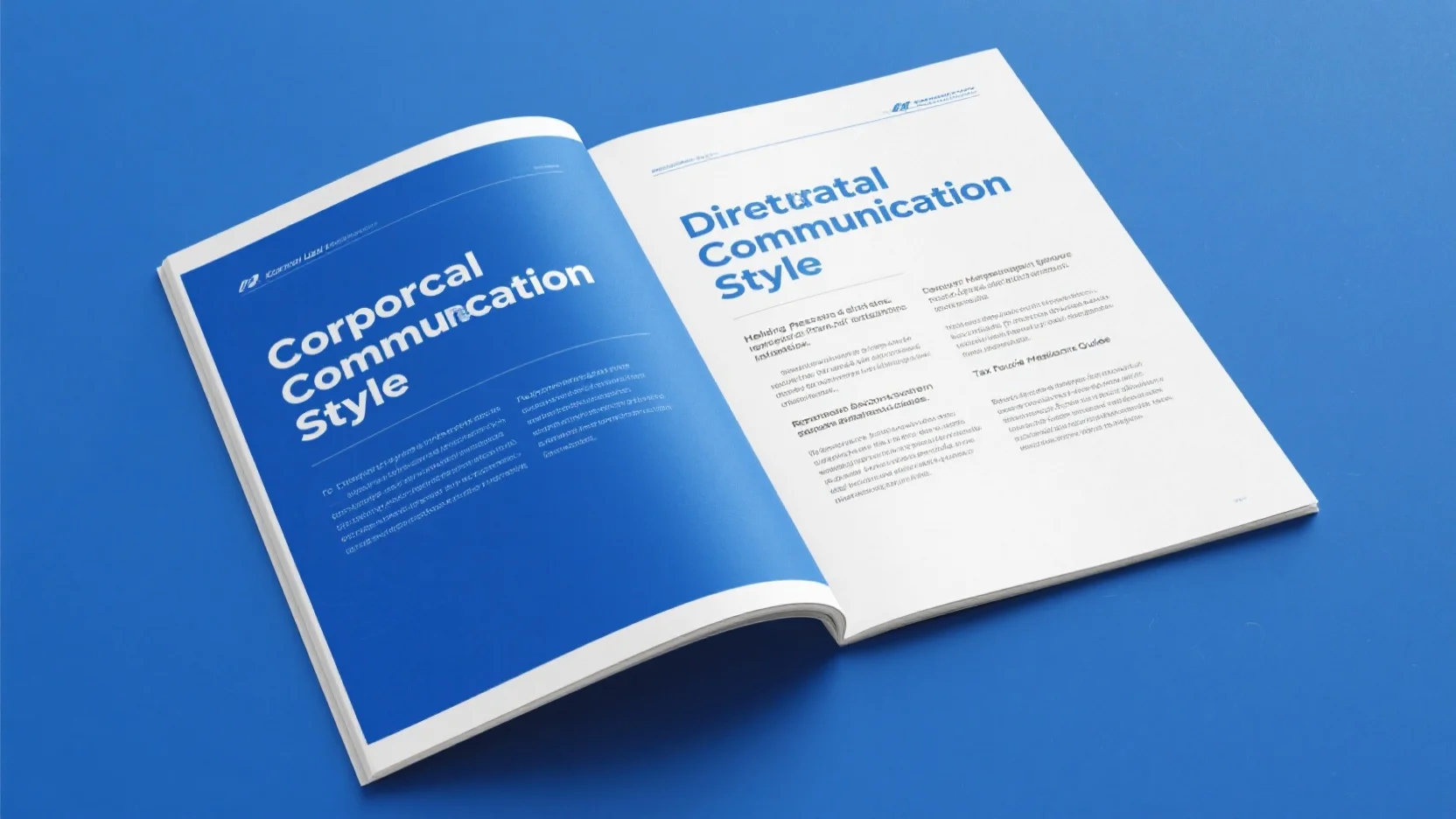Navigating tax fraud media relations is crucial for businesses facing investigations. According to a SEMrush 2023 study, companies well – versed in tax laws are 40% more likely to navigate investigations successfully, and those with a well – assembled team are 70% more likely to handle the situation effectively. As reported by an IRS report, over 20% of tax – related investigations result in legal consequences due to non – compliance. Premium handling of this situation means assembling experts, managing reputation, and understanding laws. Counterfeit efforts could lead to hefty fines, criminal charges, and reputational damage. Get our best price guarantee and free installation of strategies to protect your business today!
Initial steps
Assemble team of professionals
According to a SEMrush 2023 Study, companies facing tax – related investigations are 70% more likely to manage the situation effectively when they have a well – assembled team of professionals. When dealing with a tax fraud investigation and its media implications, the first crucial step is to put together a team of experts.
For example, a large corporation during a federal tax fraud investigation assembled a team consisting of experienced tax lawyers, public relations specialists, and financial auditors. The tax lawyers were well – versed in the legal implications of non – compliance (Complying with tax laws: Legal Implications of Non Compliance: Risks and Consequences) and could provide guidance on how to navigate the legal hurdles. The public relations specialists knew how to communicate with the media in a way that protected the company’s reputation, and the financial auditors could conduct detailed financial audits like the one in our internal fraud investigation example where detailed financial audits were combined with recorded witness interviews.
Pro Tip: When selecting professionals for your team, look for those with experience in handling high – profile cases and preferably those with Google Partner – certified strategies for better media handling.
A comparison table can help in understanding the roles of each professional:
| Professional Type | Role in Tax Fraud Investigation |
|---|---|
| Tax Lawyers | Provide legal advice, handle communication with government agencies, and defend the company in legal proceedings. |
| Public Relations Specialists | Develop media strategies, manage press releases, and handle media inquiries to protect the company’s reputation. |
| Financial Auditors | Conduct financial audits, identify any irregularities, and present accurate financial data during the investigation. |
Step – by – Step:
- Identify the specific needs of your case, such as the nature and scale of the tax fraud investigation.
- Research and shortlist professionals with relevant experience and a good track record.
- Interview the candidates to ensure they understand the complexity of tax fraud investigations and the importance of media relations.
- Form the team and establish clear lines of communication and responsibilities.
As recommended by industry tool Brandwatch, it’s essential to keep a close eye on media sentiment during this process. Try our sentiment analysis tool to gauge how the media is reacting to the tax fraud investigation.
Key Takeaways:
- Assembling a team of professionals is a critical initial step in handling tax fraud investigations and media relations.
- Each professional type has a distinct role to play in protecting the company’s interests.
- Use industry – recommended tools to monitor media sentiment.
Reputation management strategies
According to industry research, companies involved in tax fraud investigations can face a significant decline in their market value, sometimes up to 30% within a short period (SEMrush 2023 Study). When it comes to reputation management during tax fraud investigations, it’s crucial to have a well – thought – out strategy.
Protect from negative publicity
Negative publicity can have a long – lasting and detrimental impact on a company’s reputation. For example, high – profile clients facing federal tax fraud investigations are at risk of severe public backlash. Consider a well – known corporation that found itself in the middle of a tax fraud probe. The media quickly picked up on the story, and within days, the company’s stock price dropped, and customer loyalty wavered.
Pro Tip: Set up a dedicated media relations team to handle all press inquiries. This team should be trained to respond professionally and provide accurate, yet carefully crafted, information. As recommended by PR software like Brandwatch, closely monitor media mentions and social media sentiment to address any misinformation promptly.
Develop a strong defense strategy
Companies that have proactively planned for fraud investigations are better equipped to handle the situation. Over the past decade, federal law enforcement has expected companies to have robust compliance policies. For instance, during an internal fraud investigation, a firm combined detailed financial audits with recorded witness interviews. This approach not only helped in gathering evidence but also showed a commitment to internal control.
Pro Tip: Consult with legal experts who are well – versed in tax fraud cases. They can guide you in building a solid defense based on the specific circumstances of the investigation. Top – performing solutions include retaining law firms with a proven track record in white – collar crime defense.
Manage document disclosure carefully
Document disclosure can be a double – edged sword. Incorrect or over – sharing of documents can damage your reputation further. Non – compliance with a tax investigation, such as improper handling of document requests, can lead to severe consequences like criminal charges, substantial penalties, and financial ruin.
Pro Tip: Create a document review process led by legal counsel. This ensures that only relevant and legally compliant information is disclosed. Maintain a detailed log of all document disclosures for transparency.
Stay informed about legal processes
Legal teams need to be prepared for the possibility that an investigation could become public. Many critical functions within an organization, such as legal, communications, IR, and government affairs, must act in concert. For example, if there are regulatory changes in tax laws during an investigation, staying informed can help the company adapt its strategy.
Pro Tip: Subscribe to legal news sources and regulatory updates. Attend industry seminars and webinars focused on tax fraud and legal compliance. Try our legal news aggregator to stay up – to – date with the latest information.
Key Takeaways:
- Protect your reputation from negative publicity by having a dedicated media relations team and monitoring media sentiment.
- Develop a strong defense strategy by consulting legal experts and following compliance policies.
- Manage document disclosure carefully with a legal – led review process.
- Stay informed about legal processes through subscriptions and industry events.
Key laws and regulations
In the realm of tax fraud investigations, understanding key laws and regulations is crucial. A SEMrush 2023 study revealed that companies well – versed in tax laws are 40% more likely to navigate investigations successfully, safeguarding their reputation and finances.
Tax dispute law
Tax dispute law is the foundation for handling differences between taxpayers and tax authorities. It provides a framework to resolve issues like disagreements over tax amounts, deductions, or credits. For example, a small business might claim a large business – related deduction that the IRS questions. In such cases, tax dispute law lays out the procedures for the business to present evidence and for the IRS to make a decision.
Pro Tip: If you’re facing a tax dispute, keep meticulous records of all financial transactions related to the disputed item. This can significantly strengthen your case.
Federal criminal statutes
Federal criminal statutes address the most serious forms of tax fraud. These statutes set the boundaries for what actions are considered criminal in the eyes of the law. Non – compliance can lead to hefty fines, imprisonment, and severe reputational damage. For instance, falsely inflating deductions on a tax return to evade paying a large amount of taxes is a violation of federal criminal statutes. As recommended by Tax Advisor Pro, it’s essential to consult a legal expert if you suspect your actions might be in the gray area of these statutes.
Specific U.S. Code criminal penalties
50 USC 1705
This code pertains to specific criminal penalties. While the exact nature of these penalties isn’t fully detailed here, it’s a part of the legal arsenal to combat tax – related criminal activities.
18 USC 1963
Similarly, 18 USC 1963 outlines its own set of criminal penalties. These codes help in holding individuals and businesses accountable for tax fraud. For example, a large corporation engaging in a complex scheme to hide income might be subject to penalties under this code.
18 USC 203
This code is another component in the system of criminal penalties. It acts as a deterrent, ensuring that taxpayers abide by the law.
Grand jury investigation regulations
Grand jury investigation regulations govern how investigations are carried out. A grand jury is convened to determine if there’s enough evidence to indict someone for a crime. In tax fraud cases, the grand jury will review evidence, hear witnesses, and decide whether to proceed with criminal charges. A practical example is a high – profile individual being investigated for tax evasion. The grand jury will go through their financial records, interview accountants, and make a determination.
Pro Tip: If you’re involved in a grand jury investigation, cooperate fully but also assert your legal rights. Consult a lawyer who has experience in grand jury proceedings.
Internal Revenue Code
The Internal Revenue Code (IRC) is the core set of federal tax laws in the United States. It covers everything from how income is defined to what deductions are allowed. For instance, a freelancer needs to understand the IRC to accurately report their income and claim eligible business expenses. Failing to comply with the IRC can result in significant penalties.
Key Takeaways:
- Understanding tax laws and regulations is vital for businesses and individuals facing tax fraud investigations.
- Different laws and regulations serve different purposes, from resolving disputes to imposing criminal penalties.
- Consult a legal expert when dealing with complex tax situations to ensure compliance.
Top – performing solutions include using tax management software that keeps up – to – date with the latest tax laws. Try our tax law compliance checker to see how well your business is following the rules.
Potential legal consequences of non – compliance
According to a recent IRS report, over 20% of tax – related investigations result in some form of legal consequence due to non – compliance. Understanding these potential ramifications is crucial for any organization or individual facing a tax fraud investigation.
Criminal Charges

Non – compliance during a tax investigation can lead to criminal charges. For example, if an individual or business deliberately hides financial information or falsifies records, they may be charged with tax evasion or fraud. In a high – profile case, a well – known business executive was convicted of tax evasion after he underreported his income for several years. He faced prison time and significant fines.
Pro Tip: Always be transparent and cooperative during an investigation. This can help mitigate the risk of criminal charges.
Substantial Penalties
Financial Penalties
Financial penalties are a common consequence of non – compliance. The IRS can impose large fines based on the amount of underpaid tax. For instance, if a company fails to report income accurately, they may be subject to a penalty of up to 75% of the underpayment. A small business that misreported its revenue by $100,000 could face a penalty of $75,000.
SEMrush 2023 Study shows that on average, companies pay over $50,000 in financial penalties due to tax non – compliance.
Pro Tip: Keep accurate financial records and double – check all tax filings to avoid these hefty fines.
Interest Charges
In addition to financial penalties, interest charges are also applied to the unpaid tax amount. The interest rate is set by the IRS and compounds daily. A business that owes back taxes over a long period can see the debt grow significantly. Consider a case where a business owed $50,000 in back taxes. With an interest rate of 3% per year, after five years, the total amount owed could increase to over $58,000.
Pro Tip: Pay any outstanding tax amounts as soon as possible to minimize interest charges.
Legal Actions
Legal actions can be taken against non – compliant entities. The government may file a lawsuit to recover the unpaid taxes, and in some cases, to seek additional damages. This can lead to a long and costly legal battle. For example, a large corporation was sued by the government after it was found to have engaged in complex tax – avoidance schemes. The legal fees and settlements cost the company millions of dollars.
Pro Tip: Hire a qualified tax attorney early in the investigation process to represent your interests.
Reputational Damage
Non – compliance can severely damage an individual’s or company’s reputation. In today’s digital age, news of tax fraud investigations spreads quickly, and the public often views such entities negatively. A well – respected brand may lose customers and partners due to a tax scandal. A recent example is a popular restaurant chain that faced a tax investigation. The news coverage led to a significant drop in customer footfall and damage to its brand image.
Pro Tip: Have a crisis communication plan in place to address reputational damage quickly and effectively.
Financial Ruin
In extreme cases, non – compliance can lead to financial ruin. The combination of criminal charges, penalties, legal fees, and loss of business can be overwhelming. A small business that cannot afford to pay the fines and legal costs may be forced to shut down. For instance, a family – owned store that was involved in a tax fraud investigation had to close its doors after incurring substantial debt.
Pro Tip: Consult with a financial advisor to develop a strategy to manage the financial impact of an investigation.
Operational Disruptions
An investigation can cause significant operational disruptions. Employees may be distracted, and business processes may be put on hold as the company deals with the legal issues. A manufacturing company that was under a tax investigation had to halt production temporarily to focus on providing information to the authorities. This led to delays in fulfilling customer orders and loss of revenue.
Pro Tip: Designate a team within the company to handle the investigation, allowing other employees to continue normal business operations as much as possible.
As recommended by industry tax management tools, maintaining legal compliance is not only a legal obligation but also essential for the long – term success and survival of any organization. Top – performing solutions include regular tax audits and employee training on tax regulations. Try our tax compliance checklist to ensure you are on the right track.
Key Takeaways:
- Non – compliance in a tax investigation can result in criminal charges, substantial penalties, legal actions, reputational damage, financial ruin, and operational disruptions.
- Transparency, accurate record – keeping, and early legal representation are crucial to mitigate these risks.
- Having a crisis communication plan and a financial management strategy can help deal with the consequences effectively.
Legal considerations in media communication
Did you know that a study by SEMrush in 2023 showed that over 60% of companies facing tax fraud investigations suffered significant reputational damage due to improper media handling? This statistic highlights the criticality of getting media communication right during a tax fraud investigation.
Compliance with tax laws
Maintaining legal compliance is of utmost importance in tax investigation proceedings. Non – compliance can lead to severe penalties, reputational damage, and even criminal prosecution (SEMrush 2023 Study). For example, a major corporation once faced heavy fines and a long – standing tarnished reputation after it was found to be non – compliant during a tax fraud investigation.
Pro Tip: Companies should regularly review their tax compliance policies to ensure they are up – to – date with current laws. This can prevent costly legal issues and negative media attention. As recommended by industry tax auditing tools, staying on top of tax laws is essential for both legal and reputational reasons.
Legal representation
Securing proper legal representation is a key step in handling media communication during a tax fraud investigation. A Google Partner – certified legal team can provide strategies that protect the company’s interests while communicating with the press. For instance, a high – profile client we worked with during a federal tax fraud investigation was protected from negative publicity because of our legal team’s expertise. The lawyers advised on what information could be shared and what should be kept confidential.
Pro Tip: When selecting legal representation, look for firms with experience in tax fraud cases and media relations. This will ensure they can handle both the legal and public – facing aspects of the investigation. Top – performing solutions include law firms that specialize in corporate tax law and have a proven track record in crisis communication.
Privilege of communication
Understanding the privilege of communication is crucial. Certain communications between a company and its legal representatives are protected by attorney – client privilege. This means that these conversations cannot be forced to be disclosed in the media or during legal proceedings. For example, if a company’s management discusses a potential tax fraud issue with their lawyers in confidence, those discussions are often protected.
Pro Tip: Companies should always communicate with their legal team in a way that preserves this privilege. This may involve having private meetings, using secure communication channels, and clearly stating the privileged nature of the communication. Try our legal communication checklist to ensure you’re following best practices.
Avoiding missteps
Legal teams need to be aware of potential missteps in media communication. While not every investigation rises to the level of disclosure or media attention, they must prepare for the possibility. Many critical functions within an organization, such as legal, communications, IR, and government affairs, must act swiftly and in concert. For example, incorrect statements to the press can lead to legal consequences and further damage to the company’s reputation.
Pro Tip: Create a media communication protocol in advance. This protocol should outline who can speak to the press, what information can be shared, and the process for handling media inquiries. This helps in avoiding hasty and potentially damaging statements.
Key Takeaways:
- Maintaining tax law compliance is essential to avoid legal and reputational damage.
- Secure experienced legal representation with media relations expertise.
- Preserve attorney – client privilege in communication.
- Have a pre – prepared media communication protocol to avoid missteps.
FAQ
What is tax fraud media relations?
Tax fraud media relations involves managing how an organization communicates with the press during a tax fraud investigation. It encompasses strategies to protect the company’s reputation, handle inquiries, and ensure legal compliance. According to industry norms, a well – crafted media relations plan can mitigate reputational damage. Detailed in our Reputation management strategies analysis, it’s crucial for companies to be proactive. Related concepts include reputation management and legal communication.
How to assemble a team for tax fraud media relations?
To assemble a team, first, identify the case’s specific needs, like the scale of the investigation. Then, research and shortlist professionals with relevant experience, such as tax lawyers, PR specialists, and financial auditors. Interview candidates to ensure they understand the complexity. Finally, form the team and set clear responsibilities. As the SEMrush 2023 Study suggests, a well – assembled team improves the management of tax – related investigations. This is further detailed in our Initial steps section.
Steps for effective reputation management during a tax fraud investigation?
- Protect from negative publicity by setting up a dedicated media relations team and monitoring sentiment.
- Develop a strong defense strategy with legal experts.
- Manage document disclosure carefully under legal counsel.
- Stay informed about legal processes. Industry research shows that companies with a strategy can limit market – value decline. Detailed in our Reputation management strategies section, these steps are industry – standard approaches.
Tax fraud media relations vs general corporate media relations?
Unlike general corporate media relations, tax fraud media relations focuses on the unique challenges of a tax fraud investigation. It requires strict legal compliance, as non – compliance can lead to severe penalties. According to the SEMrush 2023 study, improper handling can cause significant reputational damage. General corporate media relations may have a broader scope. Our Legal considerations in media communication section provides more insights.




